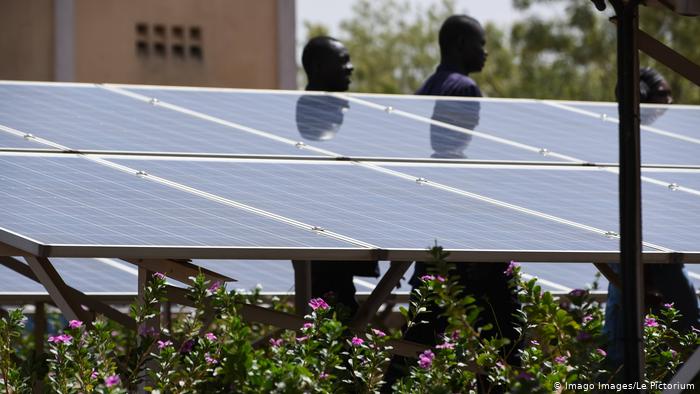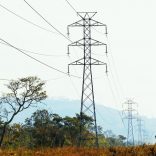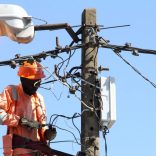Mozambique to sign sovereign fund management agreement within weeks - government
Mozambique and Germany work together for renewable energy

For illustration puroses only: Photovoltaic panels, an example of renewable energy . [File photo: DW]
The German International Cooperation Agency (GIZ) is to support Mozambique with a €3 million renewable energy fund targeting families which still depend on coal and firewood, for example.
Mozambique and Germany are jointly promoting a new fund in Maputo city today (July 31), with resources of around three million euros, designed to give the most disadvantaged access to renewable energy.
This initiative aims to “accelerate energy access for millions of Mozambicans”, the Foundation for Community Development (FDC) says in a communique, and is developed jointly with the German International Cooperation Agency (GIZ).
In addition to increasing access to renewable energy, the partner institutions also want to promote private sector development and expansion, encourage female entrepreneurship, and provide rapid response to humanitarian crises.
The communique stresses that the initiative serves as “an answer to the need to propose alternatives to poverty reduction by encouraging economic growth in the rural, urban and peri-urban areas of the country”.
Phased financing
This funding will be available in three windows. The first one, dubbed “Access”, will promote modern renewable energy solutions for households outside the national grid, including improved stoves and photovoltaic systems.

The third phase is the “Humanitarian” one, and aims to spread improved stoves and photovoltaic solar solutions to vulnerable families. Initially, funds in the ‘humanitarian’ phase are expected to be spent only in the regions most affected by Cyclone Idai, which hit Manica and Sofala provinces in March this year.
Energy sources
In Mozambique, most families still use firewood and charcoal as their main sources of energy for cooking, heating and lighting their homes. This still causes great demand for these two types of fuel, but it is one of the main causes of environmental and forestry degradation in the country. Only 28% of the population has access to the electricity grid overall, the figure falling to 5% in rural areas.












Leave a Reply
Be the First to Comment!
You must be logged in to post a comment.
You must be logged in to post a comment.